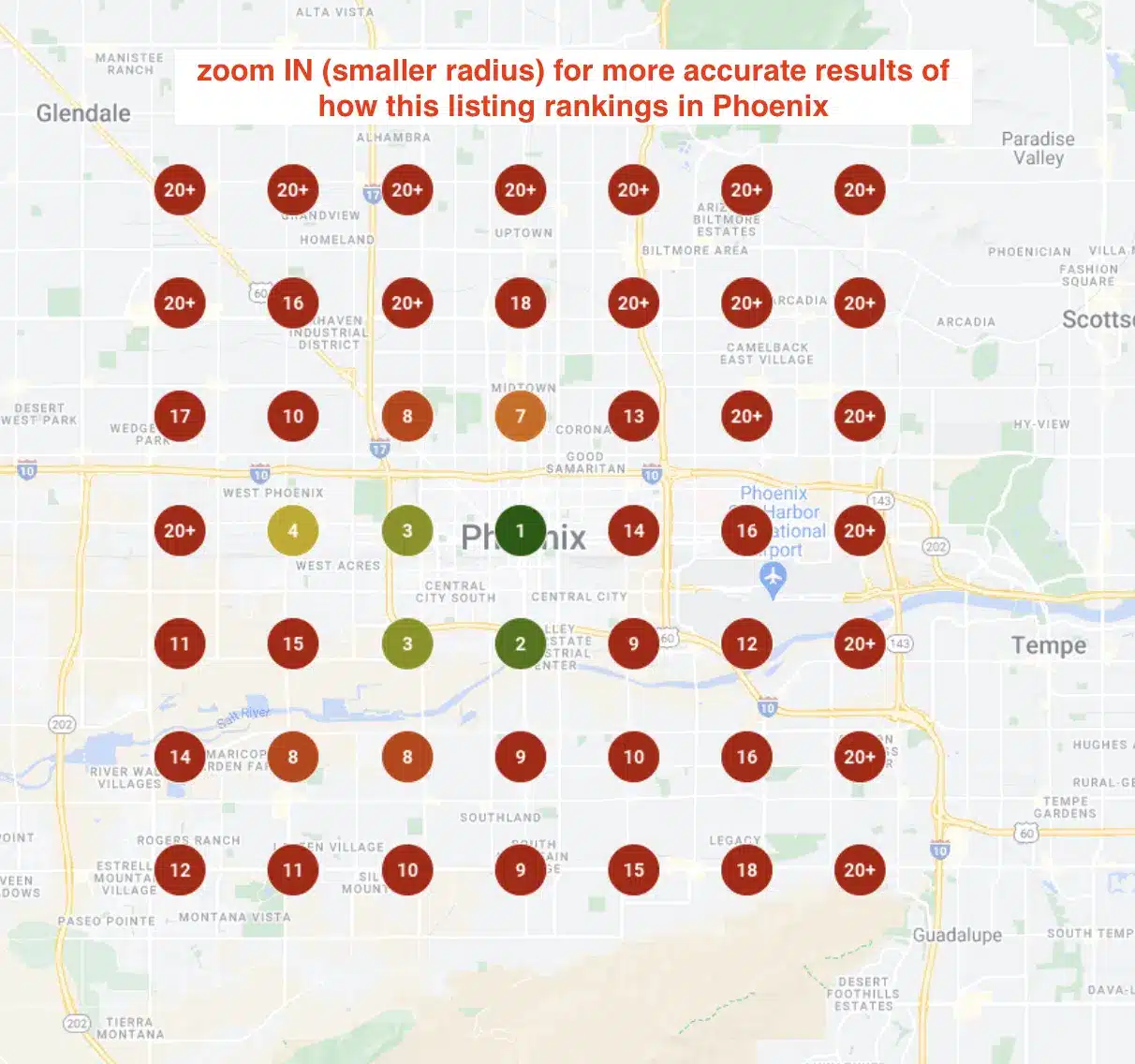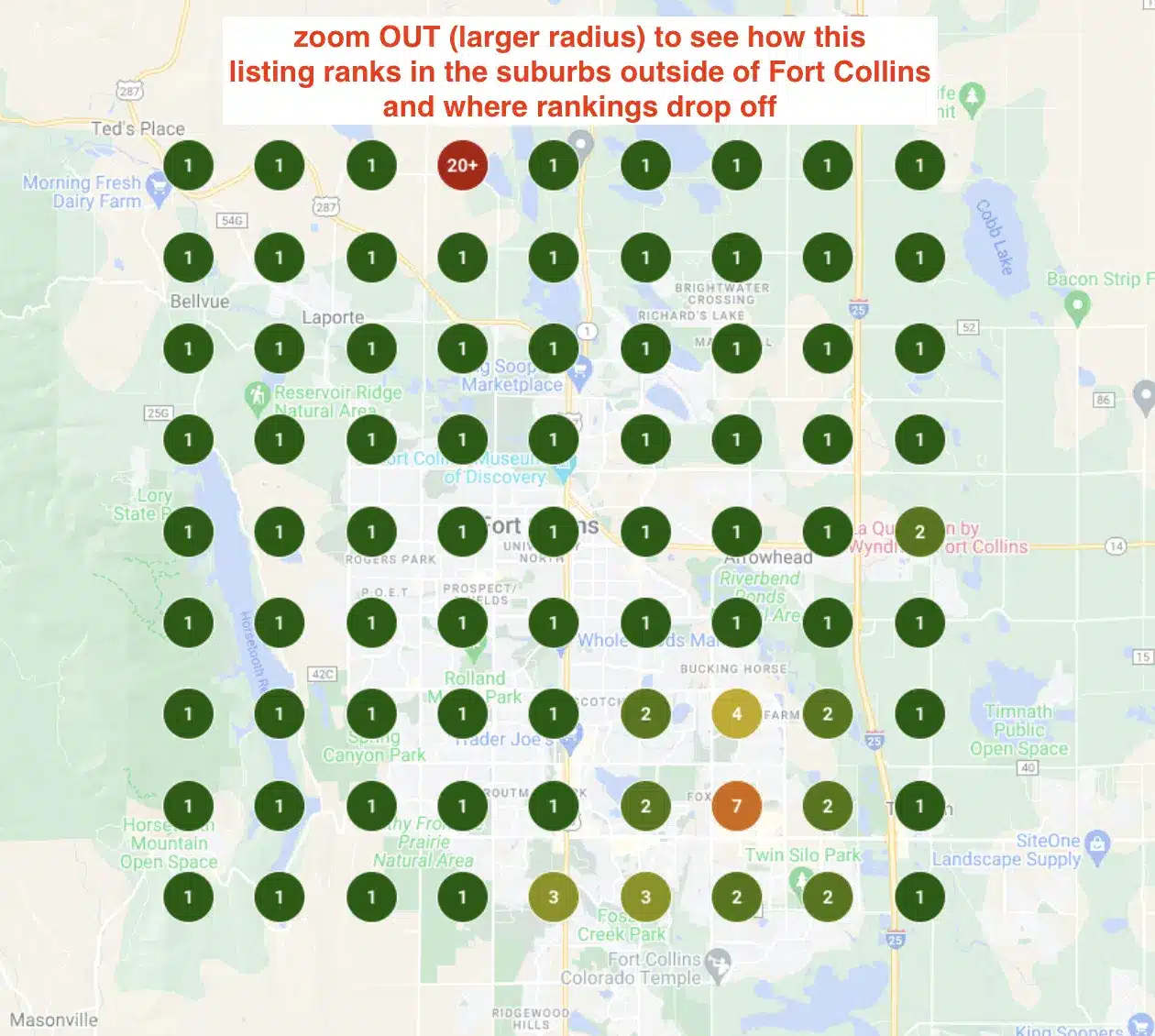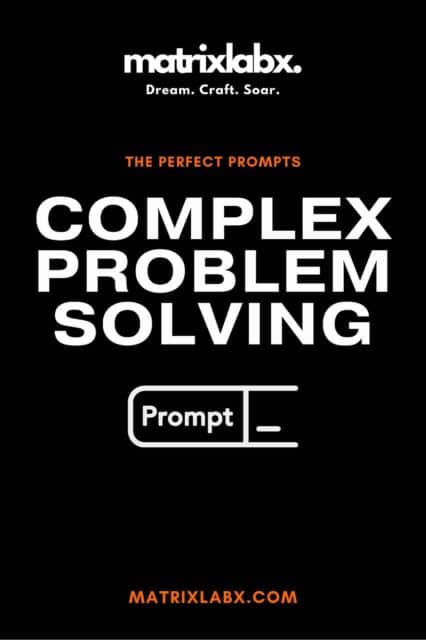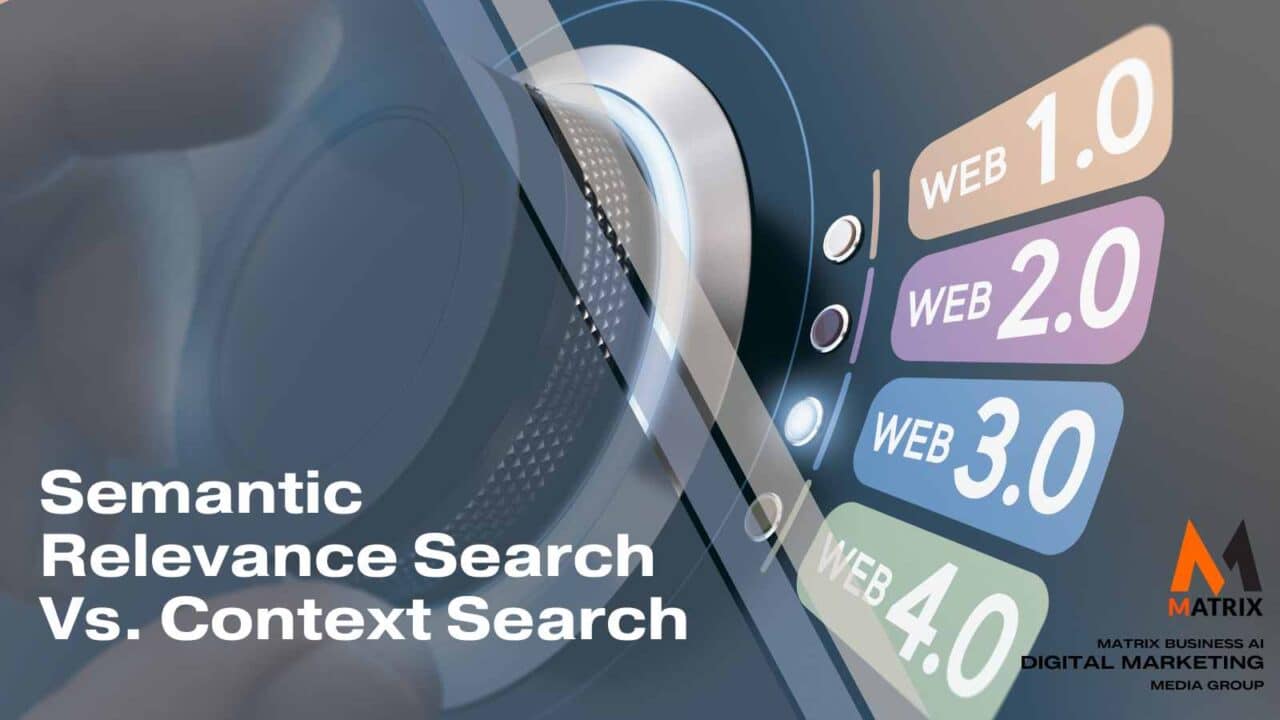Semantic Relevance Search Vs. Context Search
Learn about semantic relevance search vs. context search to improve marketing search ROI.
As a Chief Marketing Officer (CMO), you are all too familiar with the problem of underperforming marketing strategies.
Despite hiring accomplished marketers and investing in an array of marketing channels, you’re not seeing the return on investment (ROI) that was projected or expected. Watching marketing budgets drain away without generating tangible results can be incredibly frustrating.
You need to optimize your marketing operations. Otherwise, your ROI will be disappointing, leading to lost market share, reduced customer loyalty, and, ultimately, a negative effect on your bottom line.
Moreover, it needs to improve your ability to demonstrate the value of marketing spending to the rest of your organization. Failure to do so can reduce future budgets and impede your team’s ability to generate results.
Take the story of Laura, a Fortune 500 company’s CMO. Despite allocating a considerable portion of her budget to digital marketing, the ROI was continually disappointing. The marketing strategies weren’t yielding the expected dividends, leaving Laura’s team continually questioning where they were going wrong.
Then, Laura turned to our Marketing Operations Strategy. Our expert team worked closely with hers, meticulously analyzing their marketing landscape, identifying inefficiencies, and devising an optimized, data-driven plan.
We’re offering you the same opportunity to transform your marketing operations. Our strategic approach involves deep-dive audits, comprehensive market analysis, meticulous resource allocation, and data-driven decision-making. We combine this tactical approach with ongoing performance tracking to ensure our strategies deliver value and tangible results.
Are you ready to improve your marketing ROI and demonstrate the true value of your marketing operations? Contact us today for a free consultation.
We’re committed to helping you overcome your marketing challenges and accomplish your business objectives. Let us help you transform your marketing operations into a high-performing, result-driven, value-adding business element.
Boosting Your Marketing ROI: Semantic Relevance Search Vs. Context Search

In the digital landscape, data-driven marketing strategies have become the cornerstone of successful business operations. Understanding and leveraging effective search methods is an essential part of this equation.
Two of the most important yet often misunderstood are semantic relevance search and context search. As a Chief Marketing Officer (CMO) grappling with poor marketing ROI, mastering these could hold the key to boosting your returns.
85% of Web Pages Ranking in the Top 3 Will Feature Long-Form, AI-Augmented Content
Search engines will favor content that combines in-depth analysis with conversational tones, much of which will be AI-enhanced. AI-assisted research and writing tools will enable the creation of comprehensive, authoritative content at scale.
Semantic Relevance Search: The Basics
Semantic relevance search, often called semantic search, utilizes artificial intelligence (AI) to understand the searcher’s intent and the contextual meaning of terms.
It can generate highly relevant results, even for complex or ambiguous queries. It delves beyond keyword matching to understand synonyms, related terms, and user intent.
For instance, if a user searches for “Apple,” a semantic search system would analyze the context to discern whether the user meant the fruit or the tech company.
In terms of marketing ROI, semantic relevance search offers numerous benefits. It can significantly enhance user experience on your website, increase engagement, and drive conversions.
By providing more relevant search results, you’re more likely to meet your audience’s needs, resulting in increased satisfaction and, consequently, higher ROI.
Context Search: An Overview
On the other hand, context search relies on the context in which a search is conducted. This may include the user’s location, the search time, and preceding searches. In other words, it aims to interpret the user’s needs based on their circumstances.
For example, if a user in San Francisco searches for “weather” at 8 am, a context search system would understand that they’re likely looking for the current weather in San Francisco.
From a marketing perspective, context search can help create more personalized and localized marketing strategies. By understanding the user’s context, you can provide tailored content that resonates more deeply, thus enhancing engagement and boosting your marketing ROI.
Semantic Relevance Search Vs. Context Search: Which One to Use?

Both semantic relevance search and context search have unique benefits and applications, and the choice between them should be based on your specific marketing goals.
If you focus on improving your website’s user experience and providing the most relevant search results, a search with semantic relevance may be the best fit. It’s also useful when dealing with complex or ambiguous queries that require understanding intent and semantic relations.
However, context search could be optimal if your marketing strategy heavily focuses on personalization and localization. It can deliver content that aligns closely with the user’s circumstances, increasing its relevance and impact.
In reality, the most effective approach is often a combination of both. Integrating semantic relevance search and context search allows you to leverage both strengths to create an effective, personalized, and highly relevant search experience.

Examples of each semantic relevance search and context search:
Semantic Relevance Search
Example 1:
Search Query: “How long to cook a turkey?”
Semantically Relevant Results: The search engine understands that the user’s intent goes beyond simply “turkey” and “cook.” It would likely return:
Guides on turkey cooking times based on weight
Recipes for roast turkey
Tips for ensuring the turkey is cooked through and safe to eat
Example 2:
Search Query: “Best Italian restaurants near me”
Semantically Relevant Results: The search engine recognizes:
“Best” indicates a desire for quality, not just proximity.
“Italian” specifies the desired cuisine.
“Near me” implies location awareness is needed.
Results likely include highly-rated Italian restaurants within a reasonable distance of the user.
Context Search
Example 1:
Previous Search: “Symptoms of food poisoning”
Current Search: “Home remedies”
Contextually Relevant Results: The search engine understands the user likely wants home remedies for food poisoning, not just any general home remedy.
Example 2:
Location: The user is at a major airport
Search Query: “Coffee shops”
Contextually Relevant Results: The search engine prioritizes coffee shops within the airport or nearby, understanding that the user likely needs a quick option before a flight.
Key Differences
- Semantic Relevance Search focuses on a query’s underlying meaning and intent, even if the exact words aren’t present in the content.
- Context Search uses additional factors like past searches, current location, or even the content of an open document to refine the search results.
A Path to Improved Marketing ROI
In conclusion, semantic relevance and context search are powerful tools that boost your marketing ROI.
By understanding and appropriately using both, you can enhance your website’s user experience, deliver more personalized content, and ultimately drive higher engagement and conversions.
The key to overcoming poor marketing ROI may lie in search. By mastering semantic relevance search and context search, you can more effectively meet your audience’s needs, thus driving engagement and enhancing your returns.
Therefore, investing time and resources in understanding and implementing these search methods could be a game-changer for your marketing strategy and a significant step toward achieving your marketing goals.
70% of agencies need help integrating AI solutions.
70% of agencies need help integrating AI solutions into their tech stack, citing a lack of interoperability as a major barrier. 85% of marketing agencies need more in-house expertise to manage and deploy multi-AI agent systems effectively.
Matrix Marketing Group: The Ideal Marketing Operations Strategy Solution
Matrix Marketing Group is an AI-driven digital marketing agency specializing in assisting Chief Marketing Officers (CMOs) in improving their marketing operations strategy and, in turn, enhancing their return on investment (ROI).
The agency’s unique approach revolves around integrating the latest artificial intelligence (AI) technology with a comprehensive understanding of digital marketing, forming an effective blend of technology and human expertise.
This enables Matrix Marketing Group to delve deeper into market analytics, understand customer behavior more accurately, and generate more effective, data-driven marketing strategies.
Matrix Marketing Group’s marketing operations strategy solution focuses on four key areas:
- Market Analysis: A comprehensive market understanding is the foundation of any successful marketing strategy. The agency uses AI technology to analyze market trends, consumer behaviors, and competitive landscape, helping you make informed decisions.
- Strategic Planning: Based on the insights generated from the market analysis, Matrix Marketing Group develops a tailor-made marketing operations strategy that aligns with your business objectives and targets your ideal customer profile.
- Execution: The agency goes beyond planning and executes the strategy. This includes managing and optimizing marketing channels, creating and distributing content, and monitoring and adjusting campaigns based on their performance.
- Performance Tracking: Matrix Marketing Group tracks all marketing operations and measures their effectiveness using key performance indicators (KPIs). This helps ensure that your marketing operations deliver the desired ROI and identifies areas for improvement.
AI-Agentic System for Content Marketing
AI-Agentic systems like OrchestraAI for content marketing are advanced, autonomous technologies designed to execute content strategies with minimal human intervention.
Conclusion about Semantic Relevance Search
In conclusion, Matrix Marketing Group offers a comprehensive marketing operations strategy solution that combines the power of AI with deep marketing expertise.
Their approach ensures that your marketing operations are data-driven, effective, and continually optimized for the best results.
In summary, Matrix Marketing Group’s marketing operations strategy solution could be the answer for any CMO facing challenges with poor marketing ROI.
Their blend of technology and expertise can help you understand your market better, plan and execute effective strategies, and continually track and optimize your marketing operations.
By choosing Matrix Marketing Group, you choose a path to improved marketing ROI and overall business success.
Why Semantic Relevance Search, User Intent, and User Experience Are Vital in 2025
The digital landscape in 2025 is defined by hyper-personalization, data-driven insights, and evolving customer expectations. Businesses striving to stay competitive must prioritize Semantic Relevance Search, User Intent, and User Experience (UX) as central pillars of their strategy. Here’s why these three elements are critical:
1. Semantic Relevance Search
Semantic search focuses on understanding the context and meaning behind a user’s query rather than matching keywords. With advancements in natural language processing (NLP) and AI, search engines like Google now deliver results based on the intent and context of queries rather than superficial keyword matches.
Why It’s Vital:
- Improved Accuracy: Users expect relevant, precise results addressing their needs. Semantic search ensures businesses appear in results aligned with their offerings, increasing conversion opportunities.
- Voice and Conversational Search: The rise of voice assistants (e.g., Alexa, Google Assistant) means people search in natural language, often using complete sentences or questions. Semantic relevance ensures content matches these conversational patterns.
- Search Engine Optimization (SEO): Traditional keyword-based SEO is becoming less effective. Businesses must focus on optimizing content for intent and semantic meaning to maintain visibility.
2. User Intent
User intent represents the underlying goal or purpose behind a user’s query, typically informational, navigational, or transactional. Understanding this intent enables businesses to create content and strategies that meet their audience’s needs.
Why It’s Vital:
- Hyper-Personalization: In 2025, users expect tailored experiences. Recognizing intent allows companies to deliver personalized content, offers, and services in real time.
- Efficient Sales Funnels: By aligning content with intent, businesses can guide users smoothly through the sales funnel, from awareness to conversion.
- Reduction in Bounce Rates: Content that doesn’t align with user intent frustrates users, leading to higher bounce rates. Addressing intent ensures users stay engaged.
3. User Experience (UX)
User experience is the quality of interactions with a website, app, or product. It encompasses design, usability, load time, accessibility, and interactivity.
Why It’s Vital:
- Core Web Vitals and Search Ranking: Google and other search engines now prioritize UX metrics in their ranking algorithms, such as load speed and interactivity. A poor UX can directly impact a site’s discoverability.
- Retention and Loyalty: In 2025, users expect seamless, intuitive experiences across devices. A positive UX fosters brand trust, encouraging repeat engagement and loyalty.
- Competitive Advantage: As digital ecosystems become more saturated, delivering exceptional UX can differentiate businesses from competitors.
- Cross-Device Consistency: With omnichannel interactions becoming the norm, businesses must ensure a consistent UX across mobile, desktop, and other devices to maintain user satisfaction.
How They Work Together
- Semantic Relevance Search ensures content is found.
- User Intent ensures the content meets user expectations.
- User Experience ensures users enjoy and benefit from the interaction.
In 2025, businesses that excel in all three areas will attract and retain users, driving long-term growth and customer satisfaction in an increasingly competitive digital market.


